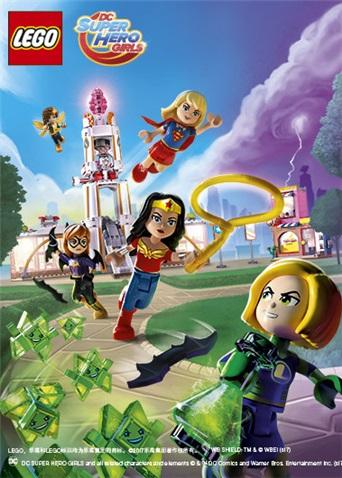热力Three youngsters encounter an evil clown.

热力Three youngsters encounter an evil clown.


回复 :被一个蔑视的情人折磨并留下来死去,一个女人发现自己内心的力量可以恢复并对她的施虐者进行报复。
回复 :十年前,为把持朝政对外求和,当朝丞相联络刺客组织刺杀当朝大将军。大将军女儿晴天目睹父亲被杀后巧合之下得知收养自己的丞相竟然是当年生父被刺的幕后真凶,而当年刺杀父亲的执行者之一刺客影化名卫平就职于丞相府侍卫统领。晴天设计引诱刺客组织刺杀自己,真正目标赫然是当年与父亲之死的所有关联人。丞相,逃亡的侍卫李东,甚至刺客头领暗都在晴天的设计之下一一死去。在最后面对卫平的反击之时,晴天才得知,当年卫平因不忍杀害大将军在行动中故意露怯而被刺客联盟逐出师门。被仇恨冲昏头脑的晴天最终伴随着自己的计划随风而去,只有一直坚守信念的卫平存活下来。
回复 :The 2-part feature-length documentary "25 ze šedesátých aneb Československá nová vlna" ("25 from the Sixties, or Czechoslovak New Wave") presents a complex view of the phenomenon of Czech and Slovak New Wave in the cultural and social context of the 60's. 25 fundamental films commented on by their makers and film historians offer the viewer a dramatic insight into the golden era of Czechoslovak cinema.The documentary is a follow-up on the biographical TV series "Zlatá šedesátá" (Czech Television, 2009), based on the filmmakers' personal remembrances. As opposed to the series, the documentary presents the Czech and Slovak cinema of the 60's in the national, international and also inter-generational context. It describes the ways the New Wave crossed the existing artistic boundaries, how it variegated the world cinema and where it left an ineffaceable impression. It analyses the work of filmmakers in a state-funded cinema, under the pressure of ideological demands on one hand and commerce on the other. It presents the dilemma of a man - an artist - on the edge between contradictory social systems and incongruous aesthetic requirements. The existential drama of a man acting freely and at the same time mercilessly crushed by the wheels of the system.The 60's are, from this point of view, mostly an era of fortunate historical constellation, not only in - at that time - Czechoslovakia, but on a world-wide scale. An era of expectations and upswing, but also an era of exemplary human decisions and artistic pursuit. Those are some of the things "25 ze šedesátých aneb Československá nová vlna" wants to commemorate.Part 1 comments on:■"Slnko v sieti" ("The Sun in a Net," 1962) by Štefan Uher■"Konkurs" ("Audition," 1963) by Miloš Forman■"Křik" ("The Cry," 1963) by Jaromil Jireš■"Postava k podpírání" ("Joseph Kilian," 1963) by Pavel Juráček & Jan Schmidt■"Každý den odvahu" ("Courage for Every Day," 1964) by Evald Schorm■"Démanty noci" ("Diamonds of the Night," 1964) by Jan Němec■"Intimní osvětlení" ("Intimate Lighting," 1966) by Ivan Passer■"Ať žije republika" ("Long Live the Republic," 1965) by Karel Kachyňa■"Obchod na korze" ("The Shop on Main Street," 1965) by Ján Kadár & Elmar Klos■"Romance pro křídlovku" ("Romance for Bugle," 1966) by Otakar Vávra■"Sedmikrásky" ("Daisies," 1966) by Věra Chytilová■"Ostře sledované vlaky" ("Closely Watched Trains," 1966) by Jiří MenzelPart 2 comments on:■"Kristove roky" ("The Prime of Life," 1967) by Juraj Jakubisko■"Stud" ("Shame," 1967) by Ladislav Helge■"Svatba jako řemen" ("A Hard and Fast Marriage," 1967) by Jiří Krejčík■"Drak sa vracia" ("Dragon's Return," 1967) by Eduard Grečner■"Marketa Lazarová" ("Marketa Lazarová," 1967) by František Vláčil■"Spřízněni volbou" ("Elective Affinities," 1968) by Karel Vachek■"Spalovač mrtvol" ("The Cremator," 1968) by Juraj Herz■"Zabitá neděle" ("Squandered Sunday," 1969) by Drahomíra Vihanová■"Pasťák" ("The Decoy," 1968) by Hynek Bočan■"Případ pro začínajícího kata" ("Case for a Rookie Hangman," 1969) by Pavel Juráček■"322" ("322," 1969) by Dušan Hanák■"Slávnosť v botanickej záhrade" ("Celebration in the Botanical Garden," 1969) by Elo Havetta■"Všichni dobří rodáci" ("All My Good Countrymen," 1968) by Vojtěch Jasný
